
The Zinn Education Project’s “If We Knew Our History” series features articles by teachers, journalists, and scholars that highlight inadequacies in the history textbooks published by giant corporations and that too often find their way into our classrooms. Articles in this series puncture myths and stereotypes. But they also discuss why it is so important that our students have access to a richer “people’s history” that questions inequality and highlights efforts to create a more just society. Our premise is that if we knew our history, the world would be a better place.
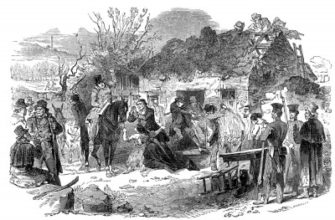
The Real Irish American Story Not Taught in Schools
By Bill Bigelow
Sadly, today’s high school textbooks continue to largely ignore the famine, despite the fact that it was responsible for unimaginable suffering and the deaths of more than a million Irish peasants, and that it triggered the greatest wave of Irish immigration in U.S. history. Nor do textbooks make any attempt to help students link famines past and present.
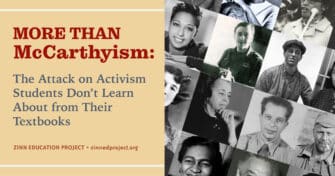
More than McCarthyism: The Attack on Activism Students Don’t Learn About from Their Textbooks
By Ursula Wolfe-Rocca
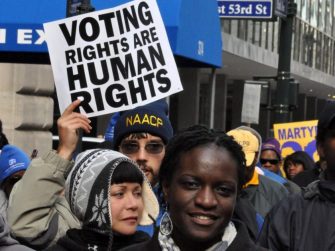
The United States Is Not a Democracy. Stop Telling Students That It Is.
By Ursula Wolfe-Rocca

What Our Students Should Know About the Struggle for the Ballot — but Won’t Learn from Their Textbooks
By Ursula Wolfe-Rocca
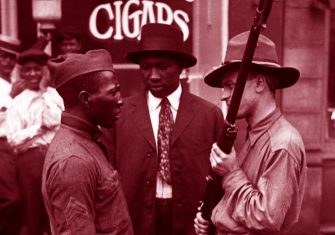
Remembering Red Summer — Which Textbooks Seem Eager to Forget
By Ursula Wolfe-Rocca
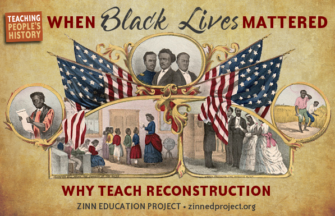
When Black Lives Mattered: Why Teach Reconstruction
By Adam Sanchez

Disguising Imperialism: How Textbooks Get the Cold War Wrong and Dupe Students
By Ursula Wolfe-Rocca
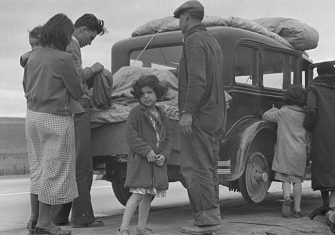
Downplaying Deportations: How Textbooks Hide the Mass Expulsion of Mexican Americans During the Great Depression
By Ursula Wolfe-Rocca
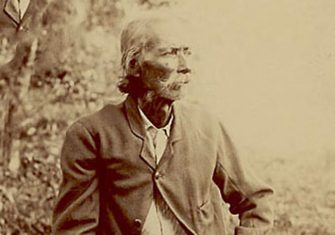
Whose History Matters? Students Can Name Columbus, But Most Have Never Heard of the Taíno People
By Bill Bigelow
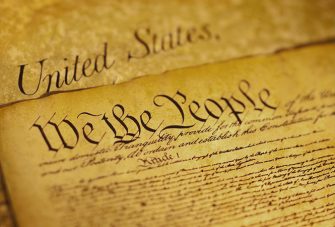
Teaching More Civics Will Not Save Us
By Ursula Wolfe-Rocca
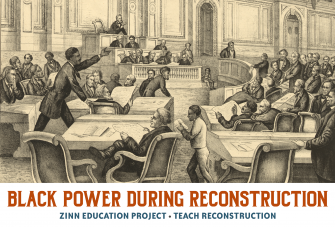
The Other ’68: Black Power During Reconstruction
By Adam Sanchez
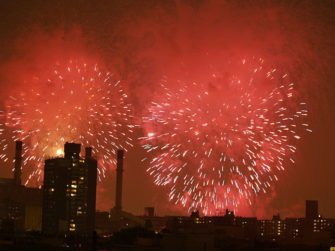
Rethinking the 4th of July
By Bill Bigelow
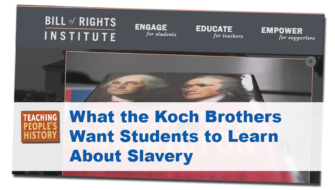
What the Koch Brothers Want Students to Learn About Slavery
By Adam Sanchez
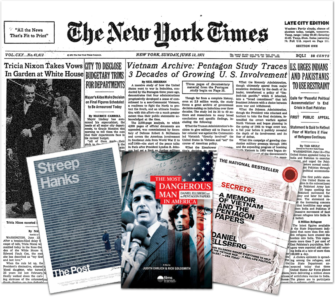
What Spielberg’s The Post — and Our Textbooks — Leave Out
By Bill Bigelow
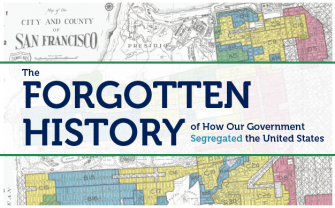
The Forgotten History of How Our Government Segregated the United States
By Richard Rothstein
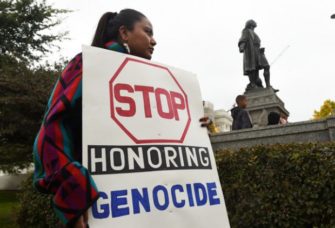
Christopher Columbus: No Monuments for Murderers
By Bill Bigelow

Taking the Fight Against White Supremacy into Schools
By Adam Sanchez
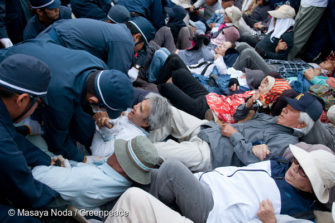
Fighting for Okinawa — My Home, Not a Military Base
By Moé Yonamine
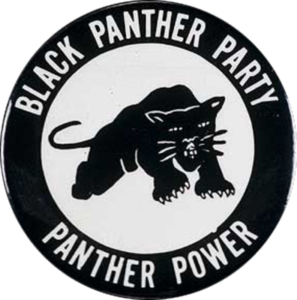
What We Don’t Learn About the Black Panther Party — but Should
By Adam Sanchez and Jesse Hagopian
This local organizing that Panthers engaged in has been erased in the textbooks, yet it is precisely what won them such widespread support. Armed with a revolutionary socialist ideology, as the Panthers grew, so did what they organized around. They fought in Black communities across the nation for giving the poor access to decent housing, health care, education, and much more.
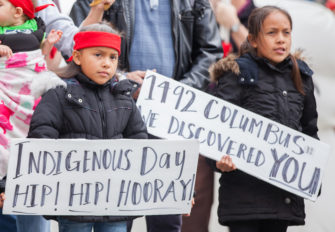
Support Indigenous Rights: Abolish Columbus Day
By Bill Bigelow
Dave Archambault, chairperson of the Standing Rock Sioux Tribe, explains that the oil pipeline “is threatening the lives of people, lives of my tribe, as well as millions down the river. It threatens the ancestral sites that are significant to our tribe. And we never had an opportunity to express our concerns. This is a corporation that is coming forward and just bulldozing through without any concern for tribes.”
The “bulldozing” of Indigenous lives, Indigenous lands, and Indigenous rights all began with Columbus’s invasion in 1492.
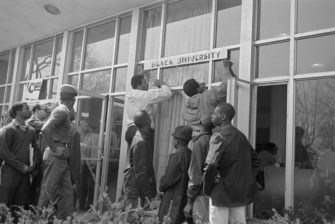
What Happened to the Civil Rights Movement After 1965? Don’t Ask Your Textbook
By Adam Sanchez
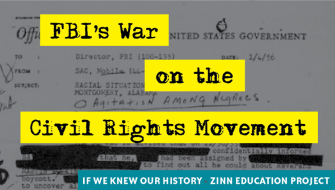
Why We Should Teach About the FBI’s War on the Civil Rights Movement
By Ursula Wolfe-Rocca
Delivered to the press, these documents revealed an FBI conspiracy — known as COINTELPRO — to disrupt and destroy a wide range of protest groups, including the Black freedom movement. The break-in, and the government treachery it revealed, is a chapter of our not-so-distant past that all high school students — and all the rest of us — should learn, yet one that history textbooks continue to ignore.
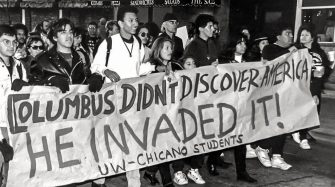
Time to Abolish Columbus Day
By Bill Bigelow
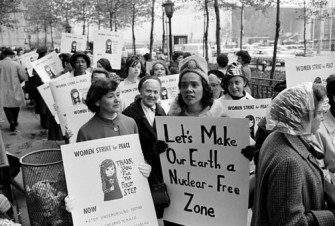
W. E. B. Du Bois to Coretta Scott King: The Untold History of the Movement to Ban the Bomb
By Vincent Intondi
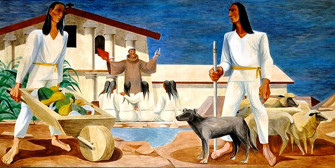
Lying to Children About the California Missions and the Indians
By Deborah A. Miranda

Ten Things You Should Know About Selma Before You See the Film
By Emilye Crosby
Here are 10 points to keep in mind about Selma’s civil rights history.
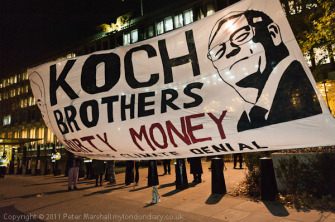
The Koch Brothers Sneak into School: How Right-wing Billionaires Seek to Shape the Social Studies Curriculum
How Right-wing Billionaires Seek to Shape the Social Studies Curriculum
By Bill Bigelow
Well, the Kochs won’t be there in person, but they will be represented by a Koch-funded and controlled organization: the Arlington, Virginia-based Bill of Rights Institute.
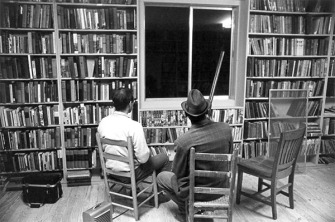
Guns and the Southern Freedom Struggle: What’s Missing When We Teach About Nonviolence
By Charles E. Cobb Jr.
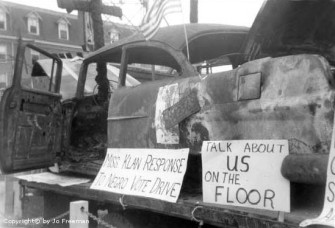
‘Is This America?’: Sharecroppers Challenged Mississippi Apartheid, LBJ, and the Nation
By Julian Hipkins III and Deborah Menkart
“Is this America, the land of the free and the home of the brave, where our lives be threatened daily, because we want to live as decent human beings?” she asked the credentials committee at the Democratic National Convention in Atlantic City, New Jersey.
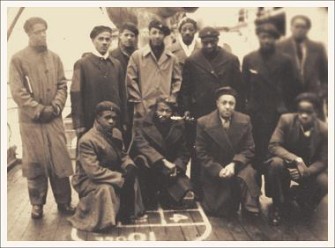
The Forgotten Fight Against Fascism
By William Loren Katz
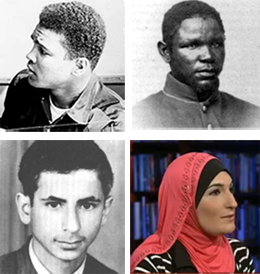
A People’s History of Muslims in the United States: What Textbooks and the Media Miss
By Alison Kysia
All of these individuals have affected U.S. history in significant ways. If we take a step back and look at the messages these figures communicate about Muslims in U.S. history, we see a story dominated by men and by the Nation of Islam. Although important, focusing solely on these stories leaves us with a skewed view of Muslims in U.S. history. Even these examples are a stretch. Most of my students reference 9/11 as the first time they heard of Muslims.
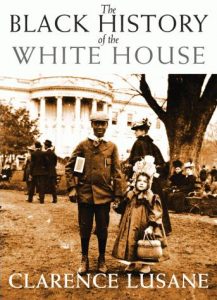
Missing from Presidents’ Day: The People They Enslaved
By Clarence Lusane
Nowhere in all this information is there any mention of the fact that more than one in four U.S. presidents were involved in human trafficking and slavery.
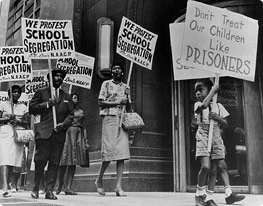
Our House Divided: What U.S. Schools Don’t Teach About U.S.-Style Apartheid
By Richard Rothstein
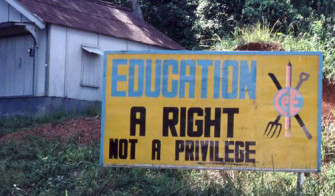
Grenada: ‘A Lovely Little War’
By Bill Bigelow
A good example is the U.S. invasion of Grenada — Operation Urgent Fury, as it was called by the Reagan administration — launched on Oct. 25, 1983. Grenada made an unlikely target of U.S. military might. Its main product was not oil but nutmeg. Its naval fleet consisted of about 10 fishing trawlers. Grenada’s population of 110,000 was smaller than Peoria, Illinois. At the time of the invasion, there was not a single stoplight in the entire country. So what put Grenada in the crosshairs of the Reagan administration?
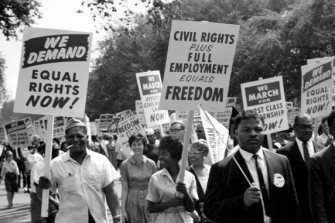
Claiming and Teaching the 1963 March on Washington
By Bill Fletcher Jr.
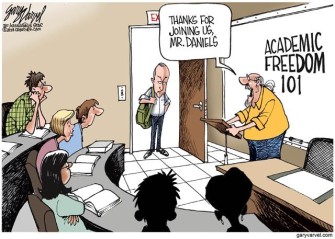
Indiana’s Anti-Howard Zinn Witch-hunt
By Bill Bigelow
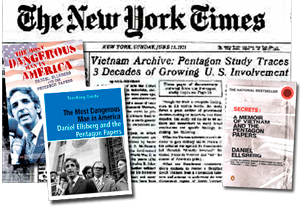
Camouflaging the Vietnam War: How Textbooks Continue to Keep the Pentagon Papers a Secret
By Bill Bigelow
Ellsberg concludes: “The American public was lied to month by month by each of these five administrations. As I say, it’s a tribute to the American public that their leaders perceived that they had to be lied to; it’s no tribute to us that it was so easy to fool the public.”
In June of 1971, Ellsberg surrendered to federal authorities at Post Office Square in Boston. Forty-two years later, few of the historical secrets that Ellsberg revealed — especially those that focus on the immediate post-World War II origins of U.S. involvement in Vietnam — appear in the school curriculum.
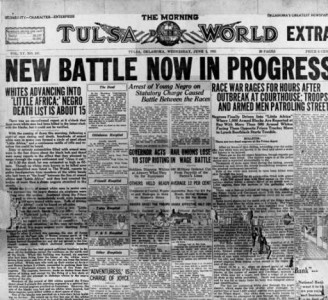
Burning Tulsa: The Legacy of Black Dispossession
By Linda Christensen
The term “race riot” does not adequately describe the events of May 31 – June 1, 1921 in Greenwood, a Black neighborhood in Tulsa, Oklahoma. In fact, the term itself implies that both Blacks and whites might be equally to blame for the lawlessness and violence. The historical record documents a sustained and murderous assault on Black lives and property. This assault was met by a brave but unsuccessful armed defense of their community by some Black World War I veterans and others.
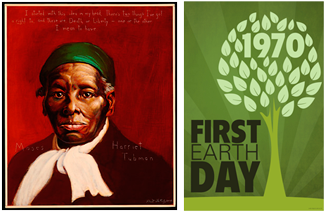
An Earth Day Message: Take Heart from the Abolition Movement
By Bill Bigelow
And abolitionists were waging not just a moral struggle against the enslavement of human beings. Slavery was the largest industry in the United States, worth more than all the factories, banks, and railroads combined. In effect, the abolition movement aimed to expropriate without compensation the wealth of the most powerful social class in the country.
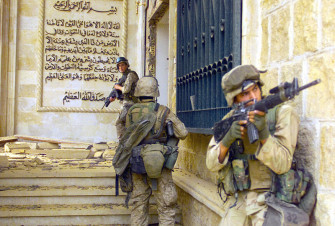
Ten Years After: How Not to Teach About the Iraq War
By Bill Bigelow
At least in a formal sense, our country’s memories of war are to be found in school history textbooks. Exactly a decade after the U.S. invasion, those texts are indeed sending “messages” to young people about the meaning of the U.S. war in Iraq. But they are not the messages of peace that Howard Zinn proposed. Not even close.

Stripmining Black History Month
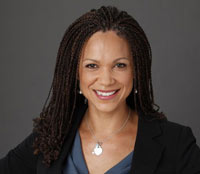
American History Lessons
She argues that we suffer from a “national deficit of historical knowledge” and that this deficit has contemporary political consequences. If we knew our history, she suggests, people would be less likely to follow the bigots who patch together historical symbols and soundbites to justify their right wing nostrums. And if we knew our history, we’d be more likely to appreciate and defend the accomplishments of social movements.
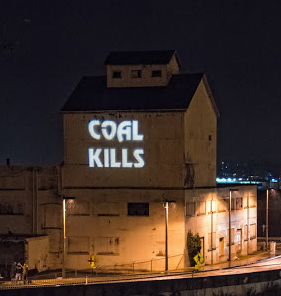
The Poison We Never Talk About in School
By Bill Bigelow
According to the International Energy Agency, burning coal creates more greenhouse gases than any other source — including oil. James Hansen, director of NASA’s Goddard Institute for Space Studies and arguably the world’s foremost climatologist, has called coal “the single greatest threat to civilization and all life on the planet.”
And, as 350.org founder Bill McKibben pointed out recently in a remarkable article in Rolling Stone magazine, “Global Warming’s Terrifying New Math,” from a mathematical standpoint, it is demonstrably impossible to prevent the climate from spinning out of control with unimaginably horrible consequences, if we burn the fossil fuels that energy corporations are in the process of exploiting and selling.

Rethinkin’ Lincoln on the 150th Birthday of the Emancipation Proclamation
By Bill Bigelow
I taught high school U.S. history for almost 30 years, and as we began our study, students knew the obvious answer: Abraham Lincoln. But by the time our study ended, several weeks later, their “Who ended slavery?” essays were more diverse, more complex — and more accurate. In coming months and years, teachers’ jobs will be made harder by Steven Spielberg’s film Lincoln, in which Daniel Day-Lewis gives a brilliant performance as, well, Lincoln-the-abolitionist. The only problem is that Lincoln was not an abolitionist.

Stealing and Selling Nature: Why We Need to Reclaim “the Commons” in the Curriculum
By Tim Swinehart
Hurricane Sandy, and the superstorms that will follow, are not just acts of nature — they are products of a massive theft of the atmospheric commons shared by all life on the planet. Every dollar of profit made by fossil fuel companies relies on polluting our shared atmosphere with harmful greenhouse gases, stealing what belongs to us all. But if we don’t teach students the history of the commons, they’ll have a hard time recognizing what — and who — is responsible for today’s climate crisis.
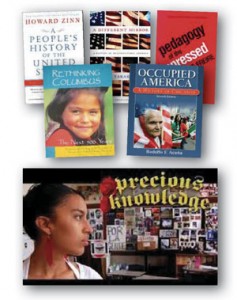
It’s Columbus Day . . . Time to Break the Silence
By Bill Bigelow
The school district sought to crush the Mexican American Studies program; our book itself was not the target, it just got caught in the crushing. Nonetheless, Tucson’s — and Arizona’s — attack on Mexican American Studies and Rethinking Columbus shares a common root: the attempt to silence stories that unsettle today’s unequal power arrangements.
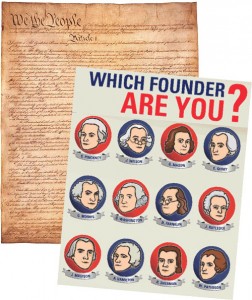
It’s Constitution Day! Time to Teach Obedience or History?
By Bill Bigelow
This is the kind of on-bended-knee Constitution worship that has long been a staple of our country’s social studies curricula.
Sure, these days, most U.S. history textbooks acknowledge that the Constitution was not without controversy. Holt McDougal’s The Americans offers a perfunctory couple of pages on the debate between elite groups of Federalists and Anti-Federalists. But corporate textbooks present the Constitution as a wise inevitability, awaiting only the Bill of Rights as the icing on a delicious cake of compromise.

Howard Zinn at 90 — Lessons from the People’s Historian
By Bill Bigelow

Fists of Freedom: An Olympic Story Not Taught in School
By Dave Zirin
When mentioned at all in U.S. history textbooks, the famous photo appears with almost no context. For example, Pearson/Prentice Hall’s United States History places the photo opposite a short three-paragraph section, “Young Leaders Call for Black Power.” The photo’s caption says simply that “. . . U.S. athletes Tommie Smith and John Carlos raised gloved fists in protest against discrimination.”
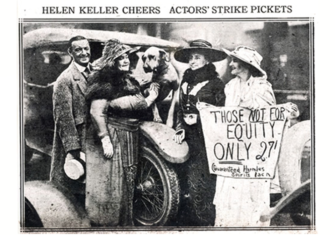
Who Stole Helen Keller?
By Ruth Shagoury

Teaching Untold Stories During Asian Pacific American Heritage Month
By Moé Yonamine
“No, they’re Asians with name tags.”
And then a student in a quiet voice walked by me slowly and muttered, “I think something really bad is happening to them.”
My students at Roosevelt High School in Portland, Oregon — one of the state’s most racially diverse schools — studied each black and white photo posted around the room, inspecting the background and the facial expressions; confused, anxious, frustrated. They began a journey to uncover the hidden story of the Japanese Latin American removal, internment, and deportation during World War II.
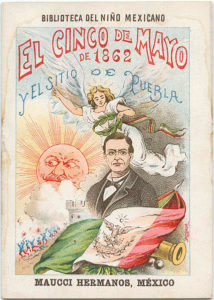
Rethinking Cinco de Mayo
By Sudie Hofmann
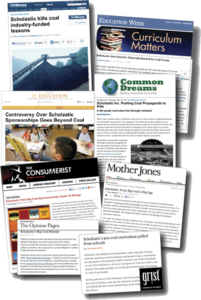
Changing the Climate in School
By Bill McKibben and Bill Bigelow
Then again, if you’ve been a middle school or high school student recently, you may not know this.
That’s because the gap between our climate emergency and the attention paid to climate change in the school curriculum is immense. Individual teachers around the country are doing outstanding work, but the educational establishment is not.
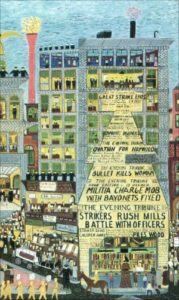
One Hundred Years After the Singing Strike
By Norm Diamond
An injury to one, we say’s an injury to all,
United we’re unbeatable, divided we must fall.
—“Dublin Dan” Liston, The Portland Revolution
Major history textbooks, however, downplay the role of ordinary people in shaping events, especially those who formed labor unions and used the strike to assert their rights. One of the most significant strikes in U.S. history occurred exactly 100 years ago, in the Lawrence, Mass. textile mills, and yet it merits barely a mention in the most widely used U.S. history textbooks.

‘Repeat After Me: The United States Is Not an Imperialist Country — Oh, and Don’t Get Emotional About War’
By Bill Bigelow
Try this “history detective” experiment. Ask the next person you encounter to tell you what they know about the U.S. war with Mexico. More than likely, this will be a short conversation, because that war (1846-48) merits barely a footnote in U.S. history textbooks.
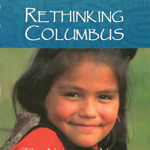
The New (and Improved?) Textbook Columbus
By Bill Bigelow
A: Christopher Columbus in 1492.
This was the simple, and simplistic, history that I learned in 4th grade in the early 1960s growing up in California — a kind of secular Book of Genesis: In the beginning, there was Columbus; he was good and so are we.
And it stayed the history that most everyone learned until the Columbus quincentenary in 1992 brought together Native Americans, social justice organizations, and educators to demand a more inclusive and critical version of what occurred in 1492 and after.
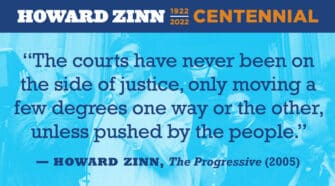
Don’t Despair About the Supreme Court
By Howard Zinn
